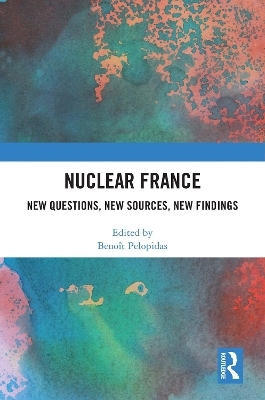
Nuclear France
Routledge (Verlag)
978-1-032-58202-3 (ISBN)
This book offers the first non-official history of French nuclear policies which goes beyond the divide between nuclear weapons and nuclear energy policies. It addresses the sizing of France’s nuclear forces, technological assistance to countries with nuclear weapons programs, uranium prospection, nuclear testing, its health effects and protests against it, as well as plans to prevent and manage accidents in nuclear power plants. It is based on new questions and new sources from France and abroad.
The chapters in this volume show how independent and interdisciplinary scholarship free from conflicts of interests can uniquely advance our understanding of nuclear history and politics. This is the case because it does not treat the categories and judgments of official discourse as neutral starting points of the analysis. This volume is based on untapped primary sources from France, the UK, the US, India, South Africa and Iran, on a new assessment of the health consequences of French nuclear testing in Polynesia thanks to a modern atmospheric particle transport code coupled with historical weather data, open-source information about radioactive debris (“mushroom”) clouds, as well as data on the composition and particle sizes of the fallout; and on new survey data about French knowledge of and attitudes towards nuclear weapons and nuclear energy. They show notably that the first generation of French nuclear forces lacked technical credibility despite reliance on outside help. Several French officials knew this, as did France's allies and adversaries. Moreover, French strategic collaborations associated to nuclear programs extended to India and South Africa; nuclear safety regulations changed fundamentally after the Cold War, and approximately 110,000 people, i.e. 90% of the French Polynesian population in the 1970s, could have received doses that would qualify them for compensation according to French law.
The volume will be of interest to scholars and students of history, politics, international relations, military history, war studies, conflict and global governance. Most of the chapters in this book were originally published as a special issue in Cold War History. A few chapters were first published in the Nonproliferation Review, Diplomacy & Statecraft and Science & Global Security.
Benoît Pelopidas is Associate Professor and the founding director of the Nuclear Knowledges program at the Center for International Studies, Sciences Po, Paris, France. Nuclear Knowledges is the first scholarly research program in France on the nuclear phenomenon which refuses funding from stakeholders of the nuclear weapons entreprise or from antinuclear activists in order to problematize conflicts of interest and their effect on knowledge production. The program mobilizes interdisciplinary methods to become able to assess accepted claims about nuclear realities. Benoît is an affiliate to CISAC at Stanford University and has been a visiting fellow at Princeton University’s Program on Science and Global Security. He is the PI of the VULPAN project funded by the French National Research Agency and the NUCLEAR project funded by the European Research Council.
1. Unfit for purpose: reassessing the development and deployment of French nuclear weapons (1956–1974) 2. Normalisation of nuclear accidents after the Cold War 3. Nuclear twins: French-South African strategic cooperation (1964–79) 4. From the dependable to the demanding partner: the renegotiation of French nuclear cooperation with India, 1974–80 5. Nuclear reach: uranium prospection and the global ambitions of the French nuclear programme, 1945–65 6. The Argentella Scandal: Why French Officials Did Not Make Corsica a Nuclear Test Site in 1960 7. French nuclear policy towards Iran: from the Shah to the Islamic Republic 8. Radiation Exposures and Compensation of Victims of French Atmospheric Nuclear Tests in Polynesia
| Erscheinungsdatum | 15.12.2023 |
|---|---|
| Verlagsort | London |
| Sprache | englisch |
| Maße | 174 x 246 mm |
| Gewicht | 500 g |
| Themenwelt | Medizin / Pharmazie ► Allgemeines / Lexika |
| Naturwissenschaften ► Biologie ► Ökologie / Naturschutz | |
| Technik ► Elektrotechnik / Energietechnik | |
| ISBN-10 | 1-032-58202-2 / 1032582022 |
| ISBN-13 | 978-1-032-58202-3 / 9781032582023 |
| Zustand | Neuware |
| Informationen gemäß Produktsicherheitsverordnung (GPSR) | |
| Haben Sie eine Frage zum Produkt? |
aus dem Bereich


